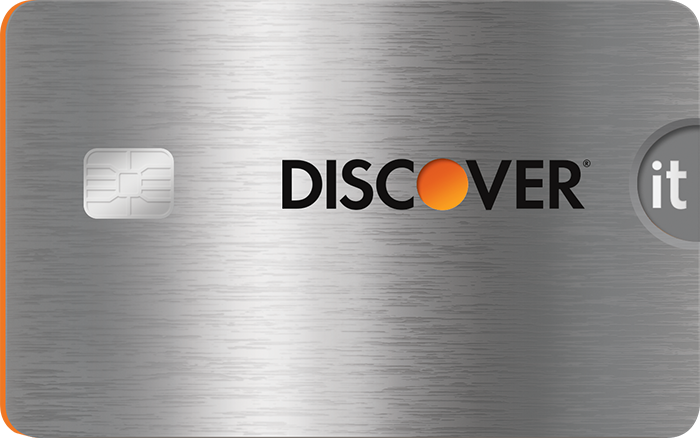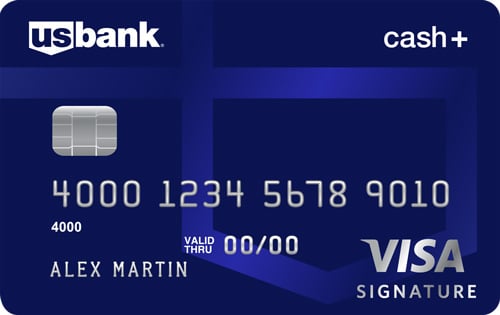- myFICO® Forums
- FICO Scoring and Other Credit Topics
- General Credit Topics
- Why isn't academic performance weighted more heavi...
- Subscribe to RSS Feed
- Mark Topic as New
- Mark Topic as Read
- Float this Topic for Current User
- Bookmark
- Subscribe
- Mute
- Printer Friendly Page
Why isn't academic performance weighted more heavily in finance and credit reporting.
Is your credit card giving you the perks you want?
Browse credit cards from a variety of issuers to see if there's a better card for you.
- Mark as New
- Bookmark
- Subscribe
- Mute
- Subscribe to RSS Feed
- Permalink
- Report Inappropriate Content
Re: Why isn't academic performance weighted more heavily in finance and credit reporting.
@Subexistence wrote:I'm aware discover offers $20 benefit for above 3.0 gpa and car insurance is cheaper for those above 3.0. However getting above 3.0 is very easy and common. Someone with a 3.85 gpa is more responsible than someone with a 3.1 and is expected to be more responsible paying off debt all else equal. I'm going to be honest that this is a rant(I'll be respectful to your opinions though) but I want to ask why can't there be more benefits for having higher gpa?
You indirectly answered your own question. On the whole, academic performance is useless as an indicator of expertise, intelligence, and even work ethic. HIgh GPA is easily attained through taking certain classes, cheating, or any of a number of other means. Given this, why would a bank offer rewards for something easily attained and/or incentivize people to commit academic fraud to obtain a financial reward?
Once you have 3-5 years relevant work experience on a resume, very few employers will even look at your grades. They'll only care if you have a degree to meet their job requirements. In all of the interviews I've conducted in the last 10 years, not once have I asked an applicant what his or her GPA was.
- Mark as New
- Bookmark
- Subscribe
- Mute
- Subscribe to RSS Feed
- Permalink
- Report Inappropriate Content
Re: Why isn't academic performance weighted more heavily in finance and credit reporting.
@iced wrote:
@Subexistence wrote:I'm aware discover offers $20 benefit for above 3.0 gpa and car insurance is cheaper for those above 3.0. However getting above 3.0 is very easy and common. Someone with a 3.85 gpa is more responsible than someone with a 3.1 and is expected to be more responsible paying off debt all else equal. I'm going to be honest that this is a rant(I'll be respectful to your opinions though) but I want to ask why can't there be more benefits for having higher gpa?
You indirectly answered your own question. On the whole, academic performance is useless as an indicator of expertise, intelligence, and even work ethic. HIgh GPA is easily attained through taking certain classes, cheating, or any of a number of other means. Given this, why would a bank offer rewards for something easily attained and/or incentivize people to commit academic fraud to obtain a financial reward?
Once you have 3-5 years relevant work experience on a resume, very few employers will even look at your grades. They'll only care if you have a degree to meet their job requirements. In all of the interviews I've conducted in the last 10 years, not once have I asked an applicant what his or her GPA was.
Same. All about the degree, plus you can lie about the GPA - no one's going to to check.
- Mark as New
- Bookmark
- Subscribe
- Mute
- Subscribe to RSS Feed
- Permalink
- Report Inappropriate Content
Re: Why isn't academic performance weighted more heavily in finance and credit reporting.
I personally see no value in considering GPA relative to creditworthiness. It's not consistent enough in my view to matter. And who would it impact? 18-22 year olds (as a whole) or would the 58 year old that been out of school for 35 years be impacted slightly still? What if they started taking college classes again on the side, would they impact their score? Too many question marks, IMO, with respect to this for it to actually be considered.
- Mark as New
- Bookmark
- Subscribe
- Mute
- Subscribe to RSS Feed
- Permalink
- Report Inappropriate Content
Re: Why isn't academic performance weighted more heavily in finance and credit reporting.
Some of the smartest people I've met with the "most impressive" degrees have bad credit and some of the dumbest people I've ever met have 800 scores.
- Mark as New
- Bookmark
- Subscribe
- Mute
- Subscribe to RSS Feed
- Permalink
- Report Inappropriate Content
Re: Why isn't academic performance weighted more heavily in finance and credit reporting.
@Subexistence wrote:I'm aware discover offers $20 benefit for above 3.0 gpa and car insurance is cheaper for those above 3.0. However getting above 3.0 is very easy and common. Someone with a 3.85 gpa is more responsible than someone with a 3.1 and is expected to be more responsible paying off debt all else equal. I'm going to be honest that this is a rant(I'll be respectful to your opinions though) but I want to ask why can't there be more benefits for having higher gpa?
One reason is that there is no correlation between academic achievement and financial responsibility.
Bank of America: Alaska Air Atmos Summit Visa Infinite
Capital One: Savor WEMC, Venture X Visa Infinite
Chase: Freedom U Visa Signature, CSR Visa Infinite
Citibank: AAdvantage Globe WLMC
Elan/US Bank: Fidelity Visa Signature
Credit Union: Cash Back Visa Signature
FICO 08: Score decrease between 26-41 points after auto payoff (11.01.21) FICO as of 12.24, EX: 816 / EQ: 825 / TU: 818
- Mark as New
- Bookmark
- Subscribe
- Mute
- Subscribe to RSS Feed
- Permalink
- Report Inappropriate Content
Re: Why isn't academic performance weighted more heavily in finance and credit reporting.
First off I'd like to thank everyone for their thoughtful responses. I do have some questions for you guys though. For those who claim GPA is not a predictor of creditworthiness, how would you explain discover giving good grade rewards to above 3.0 students? From my understanding, discover would have some research that shows good grades correlate with creditworthiness before implementing good grades policy. Also for those who claim GPA differs by major, do you disagree with discover's decision to use GPA to determine its good grades reward?









 Starting Score: Ex08-732,Eq08-713,Tu08-717
Starting Score: Ex08-732,Eq08-713,Tu08-717Current Score:Ex08-795,Eq08-807,Tu08-787,EX98-761,Eq04-742
Goal Score: Ex98-760,Eq04-760
Take the myFICO Fitness Challenge
History of my credit
- Mark as New
- Bookmark
- Subscribe
- Mute
- Subscribe to RSS Feed
- Permalink
- Report Inappropriate Content
Re: Why isn't academic performance weighted more heavily in finance and credit reporting.
@Subexistence wrote:First off I'd like to thank everyone for their thoughtful responses. I do have some questions for you guys though. For those who claim GPA is not a predictor of creditworthiness, how would you explain discover giving good grade rewards to above 3.0 students? From my understanding, discover would have some research that shows good grades correlate with creditworthiness before implementing good grades policy. Also for those who claim GPA differs by major, do you disagree with discover's decision to use GPA to determine its good grades reward?
Hah. One word: marketing.
Discover gives cards to virtually all comers, and HEAVILY promotes cards for students.
When I see Chase start doing something similar as 1) top CC lender in the US if not the world and 2) known for hardcore analytics, 3) students are just other customers to them, then I'll sit up and take notice... but for a slew of reasons mentioned here the correlation is just not there in my opinion.
Hell I know I'm smart compared to the average bear, every standardized test created by humans has proved that, but I've also had a 2.04 GPA at one school, a 3.92 at another, and they both place similarly in the national research rankings (top 50) and pretty close to the same degree track... and then elsewhere I was at a 3 (top 50 again, seeing a pattern here?), and most recently I wound up withdrawing from yet another top 50 school. All based on USNews rankings, which admittedly are debatable but the rest are flatly worse in my estimation. The only reason my credit has improved is because I came up against a situation where it mattered I couldn't get over it... voila, off towards an 800 we go even if I was unfortunately saddled with lates and a tax lien a year before I started this wayward journey.
So much impacts grades at the college level (people who work their grades will statistically suffer, and yet they are probably way way less riskier than the trust fund kids from a credit perspective) that they're not really a meaningful measure for anything beyond grad or professional school... and even then that's a bit dubious as that's not the sole criteria.





















- Mark as New
- Bookmark
- Subscribe
- Mute
- Subscribe to RSS Feed
- Permalink
- Report Inappropriate Content
Re: Why isn't academic performance weighted more heavily in finance and credit reporting.
Hi SubE. What you are seeing with the Discover GGR Program is a partiicular case of a very common situation amongst companies producing a product (and that Discover card is simply a product, no less than Ivory Soap or Tropicana Orange Juice).
The company needs to find a way to make its product unique -- some way for it to stand out from other products so that people will get it (rather than a competitor's).. And the company needs to find a way to make people stay with the product once they start.
The GGR program is a clever choice in that regard. Discover already has a lot of market control over the "credit cards for students" niche and this is a good way of maintaining and solidifying it. But ultimately it's just a rewards program. It's identifying a special kind of consumer and trying to reel him in. BOA does that with credit cards designed to appeal to sports fans. Being a Reds fan (I happen to have a BOA Reds card) doesn't make me a better credit risk -- they were just finding a way to attract and keep a particular niche of customers.
The GGR program isn't completely arbitrary -- though as I indicate above it could as well be -- not quite as much as a Reds card. The 3.0 GPA has some bearing on the value that a future customer might have to Discover. A person who regularly gets a 3.0 GPA (and that is a pretty low benchmark, which you in fact were complaining about in your initial post) is more likely to graduate with a college degree than someone who does not. People who lack a college GPA of 3.0 are either in college with borderline grades (risk of dropout) or are not in college at all. A person who is likely to graduate with a college degree is more likely to have a higher income, and may be a better candidate to entice them into loans and bank accounts and other products down the road.(all products that Discover sells).
The biggest reason that they are doing it, however, is that they are attracting and solidifying their core demographic, which is young people in college.
- Mark as New
- Bookmark
- Subscribe
- Mute
- Subscribe to RSS Feed
- Permalink
- Report Inappropriate Content
Re: Why isn't academic performance weighted more heavily in finance and credit reporting.
@Revelate wrote:
@Anonymous wrote:
@Revelate wrote:
@Subexistence wrote:I'm aware discover offers $20 benefit for above 3.0 gpa and car insurance is cheaper for those above 3.0. However getting above 3.0 is very easy and common. Someone with a 3.85 gpa is more responsible than someone with a 3.1 and is expected to be more responsible paying off debt all else equal. I'm going to be honest that this is a rant(I'll be respectful to your opinions though) but I want to ask why can't there be more benefits for having higher gpa?
How would you ever come to that conclusion?
Anyone who's been to a couple of different schools and in a few different majors (or even just paid attention in the dorms to people discussing their different majors at a single school) would know it's a fools errand... and even within a single campus and a single department and the same courses GPA isn't a measurement of someone's responsibility for paying back something like a credit card on time.
I tend to agree that good grades are not an accurate reflection of credit worthiness but at least in the auto insurance industry some companies do reward customers with good grades. Do better grades make you a better driver? I would guess that insurance companies do have some proof to that effect or else there wouldnt be discounts. So it's not that far of a stretch to think that CC companies might use some of that same reasoning to determine credit worthiness.
Which is easier to get a 4.0 at, Stanford or Berkeley?
What major are we even talking about? Nuclear Engineering at Berkeley vs. French Literature at Stanford?
Compare either of those institutions to any of the community colleges in California. Now compare to University of Texas El Paso, or Witchita State University?
There's just no correlation on grades between institutions, or even between departments at a given institution (Engineering majors with lower GPA's on average make for riskier credit users than Sociology students? Seriously?); good grade discounts are for high school students, yeah maybe though color me skeptical on the rationale. College though, there's zero consistency even between departments at a single campus let alone between campuses... in some places a 3.0 is as good as a failure in that department, and in others if you achieve that you can write your application to MIT on a cocktail napkin (admittedly with the proper letter of recommendation).
I'm nearly 100% confident in stating that if you did a trend of credit scores based on GPA achieved in college you'd probably come up with something that looked like a 6 year old's scatterplot on the wall resulting from paint tossed at a fan... it'd be a mess
. Take a survey on the forum even, just different personality traits.
It is easier to get 4.0 at Stanford then at Cal.
Cal Alum here ![]()
Bank of America: Alaska Air Atmos Summit Visa Infinite
Capital One: Savor WEMC, Venture X Visa Infinite
Chase: Freedom U Visa Signature, CSR Visa Infinite
Citibank: AAdvantage Globe WLMC
Elan/US Bank: Fidelity Visa Signature
Credit Union: Cash Back Visa Signature
FICO 08: Score decrease between 26-41 points after auto payoff (11.01.21) FICO as of 12.24, EX: 816 / EQ: 825 / TU: 818
- Mark as New
- Bookmark
- Subscribe
- Mute
- Subscribe to RSS Feed
- Permalink
- Report Inappropriate Content
Re: Why isn't academic performance weighted more heavily in finance and credit reporting.
@Revelate wrote:
@Subexistence wrote:First off I'd like to thank everyone for their thoughtful responses. I do have some questions for you guys though. For those who claim GPA is not a predictor of creditworthiness, how would you explain discover giving good grade rewards to above 3.0 students? From my understanding, discover would have some research that shows good grades correlate with creditworthiness before implementing good grades policy. Also for those who claim GPA differs by major, do you disagree with discover's decision to use GPA to determine its good grades reward?
Hah. One word: marketing.
Discover gives cards to virtually all comers, and HEAVILY promotes cards for students.
When I see Chase start doing something similar as 1) top CC lender in the US if not the world and 2) known for hardcore analytics, 3) students are just other customers to them, then I'll sit up and take notice... but for a slew of reasons mentioned here the correlation is just not there in my opinion.
Hell I know I'm smart compared to the average bear, every standardized test created by humans has proved that, but I've also had a 2.04 GPA at one school, a 3.92 at another, and they both place similarly in the national research rankings (top 50) and pretty close to the same degree track... and then elsewhere I was at a 3 (top 50 again, seeing a pattern here?), and most recently I wound up withdrawing from yet another top 50 school. All based on USNews rankings, which admittedly are debatable but the rest are flatly worse in my estimation. The only reason my credit has improved is because I came up against a situation where it mattered I couldn't get over it... voila, off towards an 800 we go even if I was unfortunately saddled with lates and a tax lien a year before I started this wayward journey.
So much impacts grades at the college level (people who work their grades will statistically suffer, and yet they are probably way way less riskier than the trust fund kids from a credit perspective) that they're not really a meaningful measure for anything beyond grad or professional school... and even then that's a bit dubious as that's not the sole criteria.
+1 - exactly my thoughts marketing and loyality to their brand.
Just think Discover (and note that I have their cards and use them a lot) will give you $20 with a qualifier of a "good" GPA, Major banks will give you a spend bonus of $100 to $500+ to open a card once you get a job - in both cases its marketing and in both cases its based on how much value YOU bring to the table to use their brand.